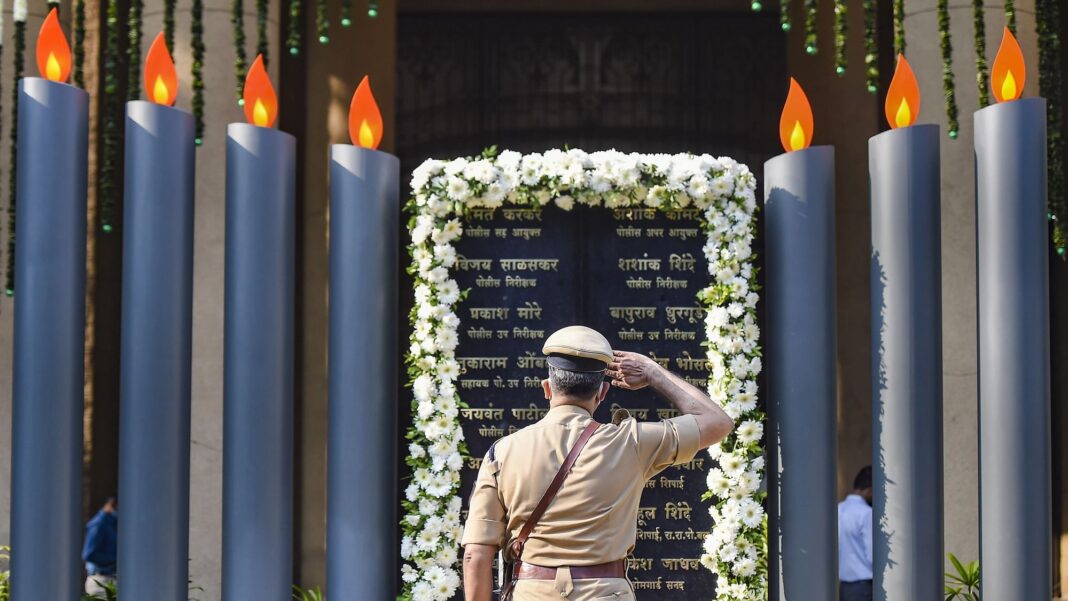Mumbai: The Mumbai Police are alert and capable of countering another attack like the 26/11 strike, a senior officer of the force told The Free Press Journal on Friday, a day before the 14th anniversary of the terrorist attack. “Continuous patrolling is being done on and off the coastline and sea routes,” the officer said. “Five helicopters remain in standby mode to deal with any emergency.
” Asked what security arrangements had been made, the officer said all “necessary steps” have been taken to ensure Mumbai’s security. “Trained commandos of the Quick Response Team (QRT) are there to help in an emergency,” the officer said. “There are a total of 650 personnel in QRT.
26/11 Mumbai attack: Brave girl who was a key witness against Kasab, still waiting for government to provide houseMore than 5,500 CCTVs have been installed across the city and its sea shores to keep an eye on any suspicious activity. “Security has been put in place at 81 landing points around Mumbai,” he said. “Patrolling is being done with nine operational high-speed interceptor boats while three are kept in reserve.
” In all, 24 such boats were allocated for Mumbai’s security. The officer added that a standard operating procedure (SOP) is now in place to coordinate the response and command of counter-terror operations by the police and other specialised forces. “Our SOP is ready to deal with this type of attack,” he asserted.
“If an attack happens again, the Mumbai Police can face it. ” After 2008, several questions were raised about Mumbai’s coastal security. Fast patrol boats were bought to keep watch on the city’s extensive coastline, but all the boats are not functional at present.
Though Mumbai’s Marine Police has a total of 24 boats, patrolling is being done with nine, while three boats have been kept in reserve. “Maintenance work is being carried out on 12 of the 24 boats,” another officer The Journal spoke to said. That means only half the fleet is currently operational.
For the 2008 strike, 10 Lashkar-eTaiba (LeT) terrorists arrived from Pakistan by sea and laid siege to the city, opening fire at various places and killing 166, including several police personnel. The attack, which began on the night of Nov 26, lasted till Nov 29. Iconic spots like the Chhatrapati Shivaji Terminus, the Trident Hotel, the Taj Mahal Palace and Tower, Leopold Café, Cama Hospital and Nariman House Jewish centre were targeted.
Maharashtra Anti-Terrorism Squad chief Hemant Karkare, Major Sandeep Unnikrishnan of the elite National Security Guard, Additional Police Commissioner Ashok Kamte and Senior Inspector Vijay Salaskar were among those killed. Ajmal Kasab was the only one of the attackers to be captured alive. He was tried, convicted and hanged on Nov 21, 2012.
Fourteen years have passed but Mumbaikars can never forget the attack. Since then questions have routinely been raised about how prepared the city is to thwart an attack from the sea. The city has a coastline of 114 km with as many as 81 landing points.
Of these, 21 are classified as sensitive and eight as hypersensitive and local police are permanently stationed there. The city’s seashore comes under the jurisdiction of 33 police stations. The Marine Police has the responsibility of guarding the city’s waters up to a distance of 12 nautical miles, though their craft can only go up to eight nautical miles in the sea.
The coast is divided into four sections: Gorai Beach to Bandra Reclamation, Reclamation to Raj Bhavan, Raj Bhavan to the Gateway of India, and Gateway of India to the Thane creek. .
From: freepressjournal
URL: https://www.freepressjournal.in/mumbai/sop-for-terror-threat



